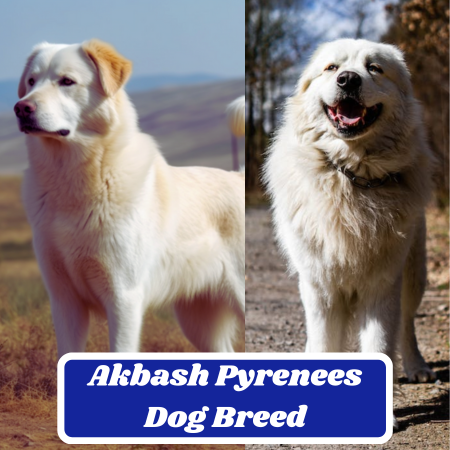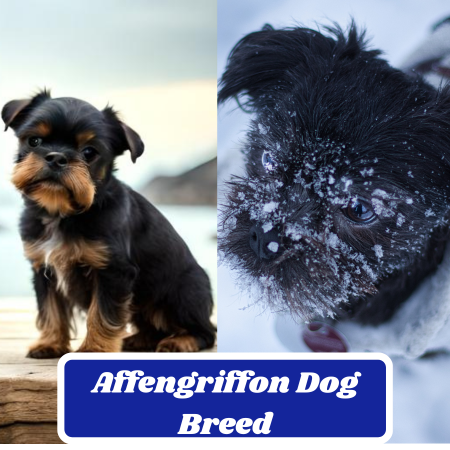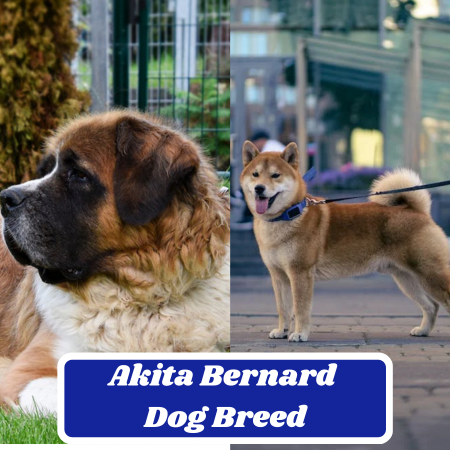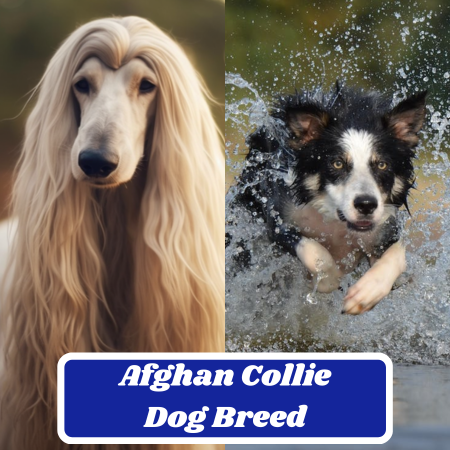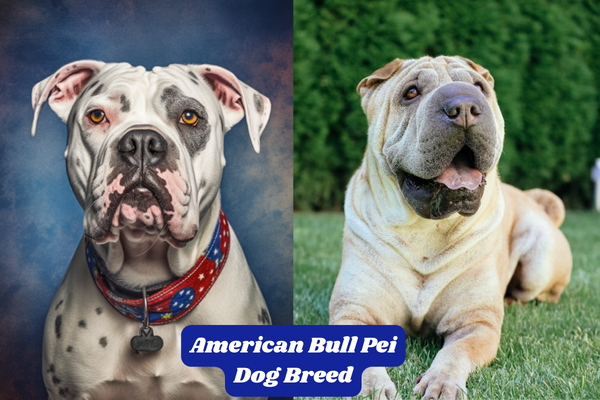Akita Chow Dog Breed: Information, Appearance, and Characteristics
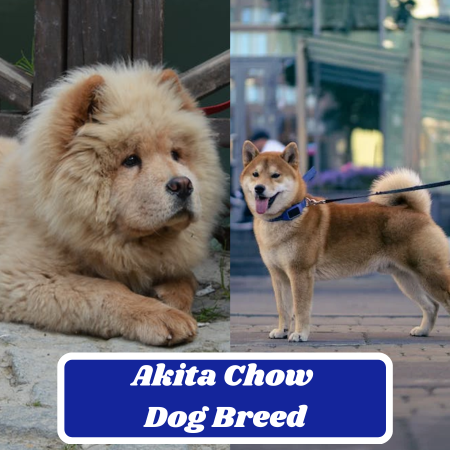
| Height | Weight | Lifespan | Colors | Suitable for | Temperament |
|---|---|---|---|---|---|
| 20-25 inches | 60 -150 pounds | 9- 12 years | black, brown or cream with thick fur around their necks that resembles a lion’s mane | Active, protective, loving | Big & furry, protection, loving |
Brief History of Akita Chow Dog Breed
The Akita Chow dog breed is a unique blend of two distinct breeds – the Akita Inu and the Chow Chow. The origins of these two breeds can be traced back to ancient times when they were used for hunting, guarding, and protecting their owners.
The Akita breed originated in Japan while the Chow Chow is believed to have originated in China. The Akita breed was bred for centuries to be a guardian dog, which led to their loyalty and protectiveness towards their families.
On the other hand, the Chow Chow was bred as a working dog, used for hunting game but also as a farm dog. When these two breeds were combined, they created a loyal companion with an independent streak.
It wasn’t until later on that the Akita Chow became more popular outside of Asia. As with many mixed breeds, it can be difficult to determine exactly when this breed emerged but today they are recognized by various organizations such as the International Designer Canine Registry (IDCR).
Overview of Physical Appearance and Temperament
One of the most striking features of an Akita Chow is its unique appearance.
Their coat can come in various colors such as black, brown or cream with thick fur around their necks that resembles a lion’s mane.
Akita Chows have distinctive facial features including small ears that stand up straight and deep-set eyes that are usually brown or black in color.
They also have fluffy tails which curl up over their backs. In terms of temperament, this breed is known for being incredibly loyal and protective towards their family members but independent towards strangers.
Early socialization plays an important role in managing their independent nature and preventing aggression.
They are also known for being intelligent and trainable but can be stubborn at times, so it is important to use positive reinforcement techniques when training.
| Breed Characteristics | |
|---|---|
| Temperament | |
| Affectionate with Family | ⭐️⭐️☆☆☆ |
| Good with Children | ⭐️⭐️☆☆☆ |
| Sociability with Dogs | ⭐️⭐️☆☆☆ |
| Friendliness towards Strangers | ⭐️⭐️☆☆☆ |
Physical Characteristics of the Akita Bernard
Size, weight, and height
The Akita Chow dog breed is a medium to large-sized dog that typically weighs between 60 to 150 pounds, with males being larger than females. They stand at an average height of 20-25 inches at the shoulder. The size and weight of these pups can vary depending on their genetics and diet.
It’s important to note that they can be prone to obesity if not exercised regularly and fed a balanced diet. As with most dogs, it’s best to consult with a veterinarian to determine the proper diet and exercise plan for your furry friend.
Coat color and texture
Akita Chows have a beautiful double coat that protects them from the cold weather. Their outer coat is coarse and straight while their undercoat is soft and fluffy.
The fur around their neck forms a thick ruff, giving them an almost lion-like appearance. Their coat colors can range from black, brown, cream or white depending on their parent breed’s dominant traits but most often they have contrasting color markings around the eyes which give them an intense gaze.
Unique features such as curled tail and fluffy ears
One of the unique physical features of Akita Chow dogs is their curly tail which adds character to their overall appearance. When fully grown, it curls upwards over their back in a plume-like fashion.
Their ears are also another distinctive feature as they are medium-sized with slightly rounded tips that are heavily covered in fur making them appear fluffier than other breeds’ ears. When alert or curious about something you’ll see how those ears perk up like antennae boosting your pooch’s adorability factor even more!
Personality Traits
Temperament and Personality Traits
| Breed Characteristics (Higher = More Suited) | |
|---|---|
| Flexibility | |
| Apartment Living | ⭐️⭐️⭐️☆☆ |
| Good For New Owners | ⭐️☆☆☆☆ |
| Are They Sensitivite? | ⭐️⭐️⭐️⭐️☆ |
| Good With Being Alone | ⭐️⭐️⭐️☆☆ |
| Prefers Cold / Winter Dog | ⭐️⭐️⭐️⭐️☆ |
| Prefers Warm / Summer Dog | ⭐️⭐️☆☆☆ |
Loyalty and Protectiveness towards Family
One of the most prominent personality traits of Akita Chows is their loyalty and protectiveness towards their family. They are fiercely devoted to their loved ones and are always alert to any potential threats.
They will go to great lengths to defend their family, making them excellent guard dogs. However, this trait can also lead to some challenges.
Akita Chows may become overprotective or territorial if not properly trained and socialized. It’s important for owners to establish themselves as the pack leader early on and provide consistent training to ensure that the dog understands its role within the household.
Independent Nature
Akita Chows are known for their independent nature, which can sometimes be mistaken as stubbornness. They have a strong sense of self and prefer to make their own decisions rather than being told what to do. This trait can make training more challenging, but it also makes them incredibly interesting pets.
Their independence also means that they require lots of mental stimulation and exercise. If left alone for too long without proper stimulation, they may become destructive or develop bad habits.
Socialization Needs
Socialization is critical for all dogs, but it’s especially important for breeds like Akita Chows with a tendency towards protectiveness or aggression. Proper socialization from an early age helps them learn appropriate behaviors around other people and animals.
Owners should expose their Akita Chow puppies to different environments, people, sounds, smells, sights and experiences in a positive way so they grow up well-rounded, happy pets that enjoy meeting new people or pets rather than becoming aggressive or fearful around unfamiliar things.
Overall, while Akita Chows have some unique personality traits that may require extra attention from owners in terms of socialization or training needs due to those characteristics, they make wonderful companions for individuals or families who appreciate their loyalty, independence, and fierce protectiveness.
Akita Chow Training and Exercise Needs
| Trainability | Rating |
|---|---|
| Ease To Train | ⭐️⭐️⭐️☆☆ |
| Smart | ⭐️⭐️⭐️⭐️☆ |
| Potential For Mouthiness | ⭐️⭐️⭐️☆☆ |
| Prey Motivation & Frequency | ⭐️⭐️⭐️☆☆ |
| Loudness – Barking / Howling (higher = louder) | ⭐️⭐️⭐️☆☆ |
| Physical Needs | Energy Level | Intensity | Exercise Needs | Potential for Playfulness |
|---|---|---|---|---|
| ⭐️⭐️⭐️⭐️☆ | ⭐️⭐️⭐️☆☆ | Moderate | At Least 35 Minutes / Day | High |
The Importance of Early Socialization and Obedience Training
Akita Chows are known for their loyal and protective nature towards their families. However, they can be wary of strangers and other dogs if not socialized properly.
Early socialization is crucial in teaching your Akita Chow how to interact appropriately with people and animals. Obedience training is also important to establish clear communication between you and your furry friend.
Akita Chows are intelligent dogs but can be stubborn at times. Consistent training will help them understand what you expect from them, making them more obedient and easier to handle.
When it comes to training, positive reinforcement techniques work best for this breed. Praise and treats will motivate your Akita Chow to learn new commands faster, creating a strong bond between the two of you in the process.
Recommended Exercise Routines for Akita Chows
While Akita Chows have a calm demeanor indoors, they still require daily exercise to maintain good health. A simple walk around the neighborhood or a backyard game of fetch will suffice. However, it is crucial not to over-exercise your dog as they are prone to hip dysplasia.
Interactive games such as hide-and-seek or puzzle toys that dispense treats are also excellent ways to keep your Akita Chow mentally stimulated. In addition, make sure you have enough space at home where they can move around freely without tripping over furniture or knocking things over.
This is especially important if you live in an apartment or small house without a yard. Overall, regular exercise paired with early socialization and obedience training will ensure that your Akita Chow grows up healthy both physically and mentally while being a well-behaved part of the family.
Health Issues in Akita Bernard Dogs
| Health and Grooming Needs (Lower The Starts = The Less) | Rating |
|---|---|
| Shedding | ⭐️⭐️⭐️⭐️☆ |
| Drooling | ⭐️⭐️⭐️⭐️☆ |
| Grooming Difficulty | ⭐️⭐️⭐️☆☆ |
| General Health (higher = better) | ⭐️⭐️⭐️☆☆ |
| Weight Management (Potential for weight gain) | ⭐️⭐️⭐️⭐️☆ |
| Size | ⭐️⭐️⭐️⭐️☆ |
When it comes to Akita Chows, like any breed, health concerns are a top priority for owners. While they can live long and healthy lives with proper care, there are some conditions that are particularly common in this breed. One of these is hip dysplasia, which is a genetic condition that can lead to arthritis and pain in the hips.
Although this issue cannot be entirely prevented, working with reputable breeders who have screened their breeding dogs for this condition is important.
Another common issue is allergies.
Akita Chows may suffer from food or environmental allergies that can cause skin irritation, itching, and other uncomfortable symptoms. These issues can be managed by working with a veterinarian to identify the source of the allergy and making changes to the dog’s diet or environment as needed.
Common Health Issues
Hip dysplasia is one of the most common health issues affecting Akita Chows. This genetic condition causes abnormal development of the hip joint, which can lead to arthritis and chronic pain in the hips.
Although it cannot be cured entirely, there are steps you can take as an owner to help manage this issue if your dog develops it. Allergies are another common concern for Akita Chows.
Food and environmental allergies can cause skin irritation, itching, gastrointestinal upset or even respiratory distress in some cases. Keep an eye out for persistent scratching or chewing at their paws or ears – these could be signs that your dog has developed an allergy.
Preventative Measures
There are several things owners can do to help their Akita Chow maintain good health throughout their lives:
- Regular check-ups at the vet: Schedule regular check-ups with your veterinarian so they can monitor your dog’s health over time.
- Preventative care: Keep up-to-date on vaccinations and preventative treatments such as flea and tick medication.
- Proper diet: Make sure your Akita Chow gets a balanced diet that meets their nutritional needs, and avoid overfeeding to prevent obesity.
- Exercise and play: Regular exercise is essential for keeping your Akita Chow in good shape both physically and mentally. Playtime should be incorporated into their routine, as well as daily walks or runs.
While there are certain health concerns that can arise with the Akita Chow breed, these can be managed by working with reputable breeders, staying up-to-date on preventative care, monitoring your dog’s symptoms closely, and making changes to their diet or environment if needed.
With proper care and attention to their health needs, an Akita Chow can live a long and healthy life as a beloved member of your family.
Feeding
When it comes to feeding an Akita Chow, it’s important to consider their large size and high energy needs. Opt for high-quality dog food and establish a feeding schedule, avoiding leaving food out during the day.
As the Akita Chow ages, its nutritional requirements will change, and consulting a veterinarian is recommended for tailored recommendations based on individual factors such as weight, health, and energy levels.
Grooming Needs
Brushing frequency for their thick coat
One of the most noticeable physical characteristics of Akita Chows is their thick, fluffy coat. While this may look beautiful, it also means that grooming is an important part of keeping them healthy and comfortable.
Regular brushing is essential to prevent matting and tangling, which can be painful for your dog and lead to skin irritation or infection. It is recommended that you brush your Akita Chow’s coat at least once a week.
Use a slicker brush or comb to gently work out any tangles or mats, starting at the ends of the fur and working your way towards the roots. You can also use a pin brush to remove loose fur and distribute natural oils throughout their coat.
Bathing recommendations
Due to their thick coat, Akita Chows do not need to be bathed as frequently as other breeds. In fact, bathing too often can strip their fur of its natural oils and cause dryness or irritation.
You should bathe your Akita Chow no more than once every 6-8 weeks.
When bathing your dog, use a mild shampoo specifically designed for dogs with sensitive skin.
Wet their fur thoroughly and lather up the shampoo before rinsing thoroughly. Be sure to avoid getting water in their ears or eyes, as this can be uncomfortable for them.
After bathing, dry your Akita Chow’s fur with a towel or blow dryer on low heat.
Comb through any tangles while they’re still damp so that they dry smoothly.
Grooming Final Thoughts
Grooming may seem like an intimidating task when it comes to such a fluffy breed like the Akita Chow, but it doesn’t have to be complicated!
Through regular brushing and infrequent bathing sessions with quality products designed for dogs with sensitive skin will keep your Akita Chow looking and feeling comfortable.
By establishing a grooming routine, you’ll also be able to spot any potential health concerns such as lumps or rashes.
Regular grooming can help create an unbreakable bond with your Akita Chow, and it is an essential part of their overall health and well-being!
Other Akita Chow Mixes
Creating a unique breed
One of the benefits of mixing breeds is creating a unique dog that combines the best traits of both breeds.
An Akita Chow mix, also known as a Chakita or an Akita Shepherd, can inherit the loyalty and protectiveness from the Akita and the intelligence from the German Shepherd.
This mix is becoming increasingly popular in households due to its striking appearance and affectionate nature.
Akita Chow mixed with Golden Retriever
A mix between an Akita Chow and a Golden Retriever creates an adorable hybrid breed known as a Golden Chow. The Golden Retriever brings its friendly nature and joyful personality into the mix while the Akita Chow adds its loyalty and protectiveness. This cross-breed tend to be great with children and makes for an excellent family pet.
The German Shepherd-Akita combination
Mixing an Akita with a German Shepherd produces what is popularly called “Akita Shepherds.” These canines are intelligent, loyal, and protective, with strong territorial instincts – all characteristics they inherit from their parent breeds.
They are energetic dogs that need lots of exercises coupled with training sessions to release excess energy. They are also quick learners who respond well to positive reinforcement training methods.
When it comes to mixing up dog breeds, there are endless possibilities for creating your unique furry friend.
When choosing an Akita mixed breed, consider factors such as energy levels, socialization needs, size/weight requirements before deciding which one would be best suited for you or your family’s lifestyle!
Conclusion
The Akita Chow dog breed offers a wonderful combination of loyalty, protectiveness towards family and unique physical features that set them apart from other breeds.
They also have distinctive traits such as an independent nature requiring early socialization and exercise routines to maintain good health.
Their famous dogs like Hachiko remind us of the importance of loyalty and devotion towards our loved ones.
Our admiration for these qualities can only increase our appreciation for this wonderful breed!

